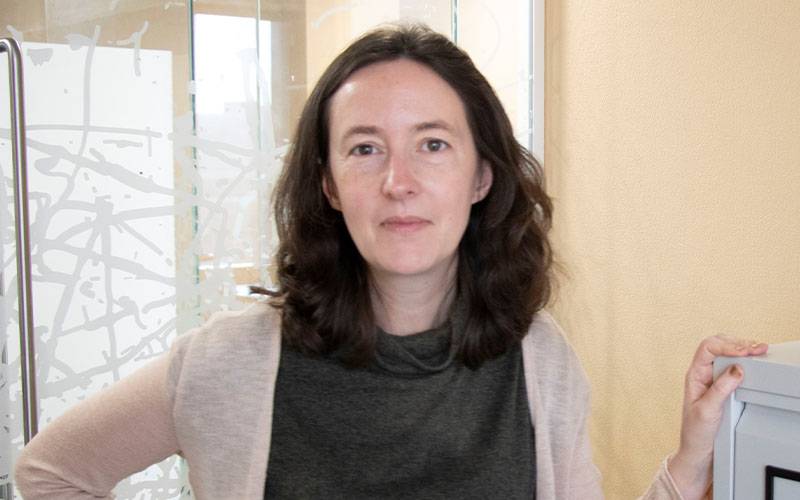This month we speak to Prof Claudia Cooper to find out how her research on older people’s psychiatry is improving the health of the public.
 What is your role and what does it involve?
What is your role and what does it involve?

I am a Professor of older people’s psychiatry at the UCL Division of Psychiatry and a consultant old age psychiatrist in the Camden memory service. I lead the UCL Alzheimer’s Society Centre of Excellence for Independence at home, in which we are developing interventions to support people living with dementia at home; and the NIHR/ESRC APPLE-Tree programme (Active Prevention in People at risk of dementia through Lifestyle, bEhaviour change and Technology to REducE cognitive decline), investigating how lifestyle and behavioural change can prevent dementia in older people. I am also a Faculty Graduate Tutor for taught programmes.
How are you improving the health of the public?
My research is about finding ways to improve the care that people with memory problems and their carers receive. In the NIDUS study, we are testing an intervention where family carers and people living with dementia receive 6-8 support sessions that are tailored to personal goals they set, to enable the person to live as well as possible in their own home. In the APPLE-Tree programme, we are testing some groups to support behavioural and lifestyle change to reduce dementia risk. Both interventions have been delivered on zoom, so if they are effective, they are likely to be very cost-effective ways to improve the health of the public.
What do you find most interesting or enjoyable about your work?
I enjoy supporting researchers and PhD students to develop their careers; and working with the research team to solve problems – whether challenges recruiting or within the interventions. I like hearing how interventions have worked in people’s lives, to make differences to the challenges they face or how they see them.
How have cross-disciplinary collaborations shaped your research?
Within the APPLE-Tree programme, I collaborate with Prof Miguel Rio and his team. We held a hackathon for engineering students in 2020 (The UCL Dementia Hack) challenging teams to develop an app to support behaviour change intended to prevent dementia. APPLE-Tree participants are currently testing this out within our trial. I have also collaborated with Dr Kartikeya Tripathi and the Department of Security and Crime Science. Our realist review published last month exploring risks of cybercrime in older people has relevance to the Online safety Bill. We are recruiting a UCL Dawes Centre-funded PhD student to continue this work.
What advice would you offer to others interested in developing cross-disciplinary research?
Most people enjoy receiving an email from a colleague in a different discipline so if there is a discipline you would like to develop some research with reach out – cross-disciplinary research is refreshing and interesting. Many fruitful collaborations start with a chance conversation or zoom chat.
What's next on the research horizon for you?
I’ve just started a visual ethnography project, collaborating with qualitative experts to explore how the photos people with memory problems take can say more than words about their experiences. I’m looking forward to learning about visual methods, and seeing the photos participants produce in professional photography workshops in our exhibition, which will be in September at UCL – everyone welcome!
If you could make one change in the world today, what would it be?
This sparked considerable debate over dinner tonight –suggestions were build a Tardis, cancel world debt and end digital exclusion. All three would be great.
 Close
Close

